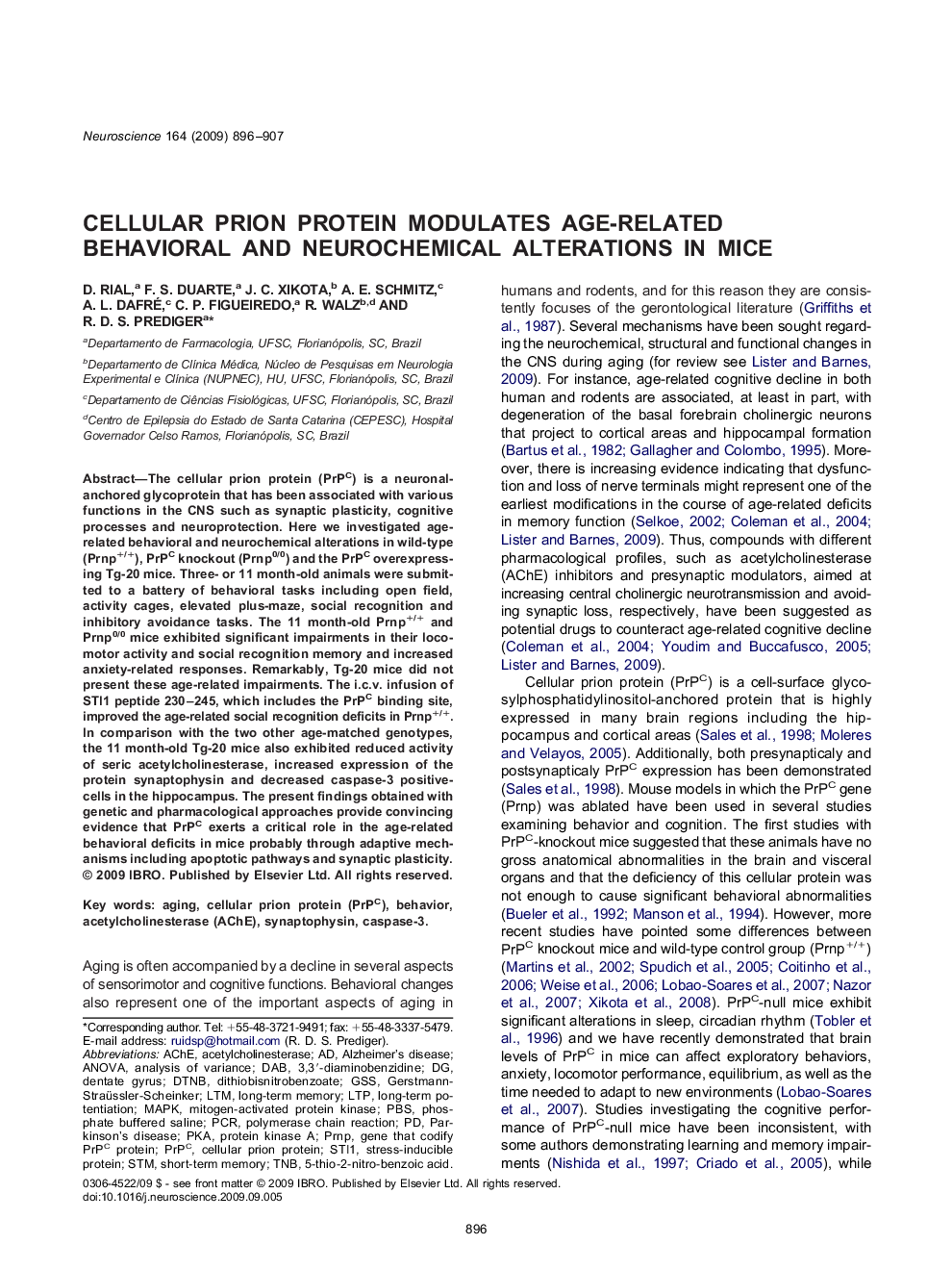| Article ID | Journal | Published Year | Pages | File Type |
|---|---|---|---|---|
| 6277446 | Neuroscience | 2009 | 12 Pages |
Abstract
The cellular prion protein (PrPC) is a neuronal-anchored glycoprotein that has been associated with various functions in the CNS such as synaptic plasticity, cognitive processes and neuroprotection. Here we investigated age-related behavioral and neurochemical alterations in wild-type (Prnp+/+), PrPC knockout (Prnp0/0) and the PrPC overexpressing Tg-20 mice. Three- or 11 month-old animals were submitted to a battery of behavioral tasks including open field, activity cages, elevated plus-maze, social recognition and inhibitory avoidance tasks. The 11 month-old Prnp+/+ and Prnp0/0 mice exhibited significant impairments in their locomotor activity and social recognition memory and increased anxiety-related responses. Remarkably, Tg-20 mice did not present these age-related impairments. The i.c.v. infusion of STI1 peptide 230-245, which includes the PrPC binding site, improved the age-related social recognition deficits in Prnp+/+. In comparison with the two other age-matched genotypes, the 11 month-old Tg-20 mice also exhibited reduced activity of seric acetylcholinesterase, increased expression of the protein synaptophysin and decreased caspase-3 positive-cells in the hippocampus. The present findings obtained with genetic and pharmacological approaches provide convincing evidence that PrPC exerts a critical role in the age-related behavioral deficits in mice probably through adaptive mechanisms including apoptotic pathways and synaptic plasticity.
Keywords
Gerstmann-Straüssler-ScheinkerSTI1PRNPDABPBSTNBPrPcCellular prion protein (PrPC)GSSpKaLTMDTNBSTM3,3′-diaminobenzidineMAPKAChEAcetylcholinesteraseAcetylcholinesterase (AChE)Alzheimer's diseaseParkinson's diseaseanalysis of varianceANOVAlong-term potentiationLTPlong-term memoryshort-term memoryBehaviorAgingSynaptophysindentate gyrusPhosphate buffered salinepolymerase chain reactionPCRprotein kinase Amitogen-activated protein kinasecellular prion proteinCaspase-3
Related Topics
Life Sciences
Neuroscience
Neuroscience (General)
Authors
D. Rial, F.S. Duarte, J.C. Xikota, A.E. Schmitz, A.L. Dafré, C.P. Figueiredo, R. Walz, R.D.S. Prediger,
